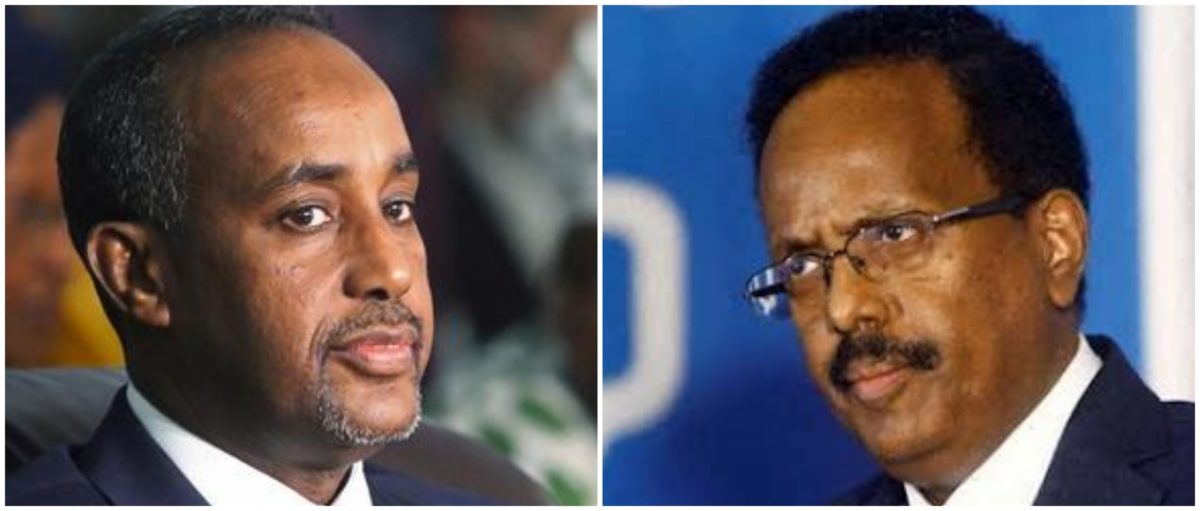The government of the United States of America (U.S) has reaffirmed its earlier position opposing the suspension of Somalia’s Prime Minister Mohammed Hussein Roble.
President Mohamed Abdullahi Mohamed on Sunday suspended Roble on allegations of corruption, stealing land owned by the country’s Army and interfering with a defence ministry investigation.
Both the U.S State Department African Affairs Bureau and the U.S embassy in Somalia would later in separate statements ask both parties to de-escalate tensions, refrain from provocative actions and avoid violence, but were quick to call Roble’s suspension “alarming” and said, it supported his efforts for rapid and credible elections.
The statements did not augur well with many Somalis and analysts who interpreted them as interference and meddling in internal management of Somalia by the U.S with an aim of dividing the country further.
On Tuesday, the spokesperson of the Secretary of State, Antony J. Blinken, in a statement said his boss while holding a conversation with Kenya’s President Uhuru Kenyatta, reaffirmed that the U.S is opposed to the suspension of the Prime Minister and supports his efforts for a quick and credible elections.
“The Secretary underscored the importance of Somalia’s national and Federal Member State leaders concluding parliamentary and presidential elections immediately and free from irregularities that would jeopardize the credibility of the outcome,” reads the statement in part.
The long-delayed elections began on November 1 and were supposed to be completed by December 24, but by Saturday, only 24 of 275 representatives had been elected.
The office of the President of Somalia said Roble was posing a serious threat to the electoral process and overstepping his mandate.
”The Secretary noted the U.S. opposition to the attempted suspension of Prime Minister Roble, and they agreed that all parties should refrain from escalatory actions and statements,” adds the statement.
In fact, Roble on Wednesday said that he had a telephone conversation with U.S. Assistant Secretary of State for African Affairs, Molly Phee, on the political, security and electoral situation in the country.
Many are wondering why U.S. is so much obsessed with defending Roble to the extent of attempting to block his suspension by his boss – the head of state with powers to appoint and disappoint. This particular suspension is aimed at allowing investigation into the allegations take place without interference from the suspect.
It should be noted that Roble in response to his suspension, said the move was unconstitutional and aimed at derailing the ongoing election. He also ordered the security forces to start taking orders from him, instead of the president.
“The man considers himself to be the President, he has got a lot of powers perhaps from his supporters the U.S, and we can’t afford to have two presidents at ago. It is better for the America to desist from interfering with the investigations,” Abdul Khadir, a Somali Journalist wrote on social media.
This is not the first time the conduct of the U.S is questioned in the Horn of Africa. Some analysts have accused it of supporting the Tigray fighters who have killed and caused misery to thousands in the North of the country, with a selfish motive of removing the legitimate government.
The U.S, refused to recognize all efforts of the legitimate government to restore peace with the fighters, but instead continues to amplify a narrative as though the Ethiopian authorities orchestrated the conflict.
The Biden administration went as far as threatening to impose sanctions on Ethiopia. The U.S gave government and the rebels a few more weeks to engage in serious negotiations. Many wonder why Americans did not work with the legitimate government to defeat terrorists or at least condemn their rebellious activities.
At the start of November, the US Embassy in Addis Ababa called on all American citizens to leave Ethiopia “as soon as possible on grounds that the security environment in Ethiopia was very fluid. This was said at the time when only one region out of the ten in the country was at war. The motive, according to analysts, was sinister.

